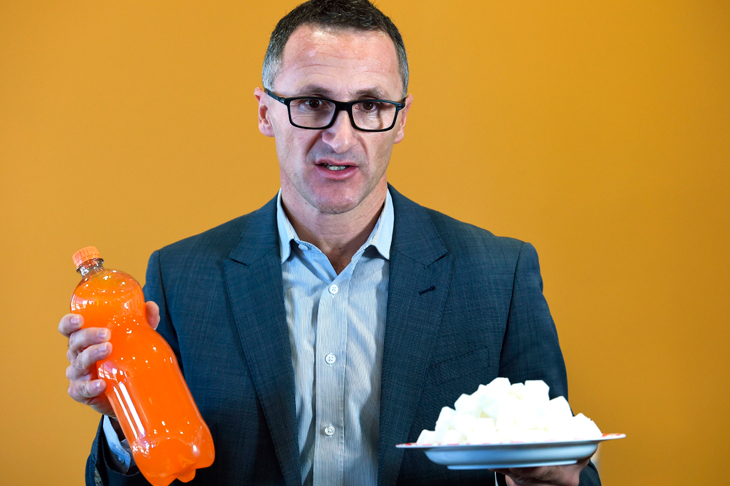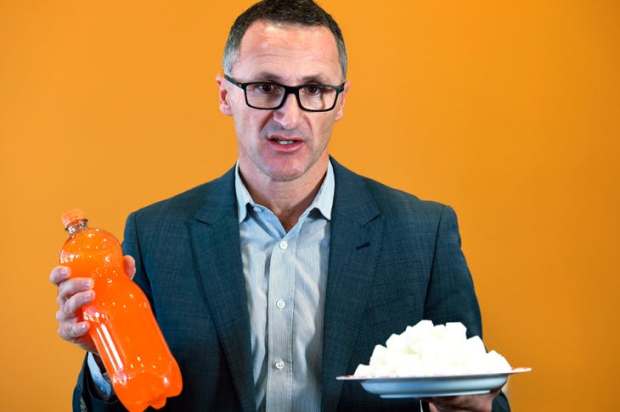New research from the University of Melbourne claiming a tax on soft drink could add 1.2 years of healthy life per one hundred Australians (that’s right – a whole 4.3 days per person) has left public health puritans positively fizzing. But we shouldn’t take the wowsers at their word. Revived calls to lump consumers with a tax on treats says more about the public health industry’s addiction to meddling in our lives than any harm caused by a sweet tooth.
The University of Melbourne’s report follows a long line of studies from the Grattan Institute and Cancer Council peddling the lofty intention of curing obesity while paying scant attention to the evidence of whether this harebrained idea is likely to work in practice. The chief problem with these so-called studies is they are laden with assumptions that treat people more like nonsentient animals than free-thinking human beings.
The supposedly ‘gradual starting point’ proposed by the boffins at Melbourne Uni of taxing soft drinks before moving onto the silent killers of aisle 11 such as beef sausages and McCain frozen pizzas assumes a tax grab on some products won’t see consumers simply substitute one guilty pleasure for another. When you consider that scores of different flavoured milks and fruit juices have an equal, if not greater quantity of sugar than your standard soft drink, the idea of placing a lone fatwa on fizzy drinks looks patently absurd.
But sure, if the wowsers at Melbourne Uni get their final solution and a whole raft of taxes on salt, fat and sugar are slapped on basically every grocery item that comes in a packet or box, won’t we see results then? Again, the public health gurus are making some heroically dumb assumptions. Right now, a 1.25L bottle of home brand cola can be purchased from Coles for the princely sum of 75 cents. Under the studies’ favoured tax model, this price will be jacked up approximately 60 cents. Does anyone seriously believe a price tag of $1.35 is the final hit to the pocket that’s going to see diabetics swap their mid-morning cola for a whole food smoothie consisting of kale, chai seeds and other varieties of garden mulch?
Thankfully, wiser minds than mine at the New Zealand Treasury have crunched the numbers and found implementing a sugar tax would be largely fruitless since consumers would generally swap their treat of choice for an equally unhealthy, non-taxed alternative.
The experience of scores of other countries that have slapped a tax on all things sticky and sweet also serves as a cautionary tale. One peer-reviewed analysis of American states that had introduced taxes on soft drink concluded the levy had no effect on body mass index. Denmark’s fat tax saw food prices rise 14 per cent while fat consumption declined a paltry 0.4 per cent. Ditto Mexico’s failed sugar tax.
If we put aside the prognostications of the public health hive mind and think about obesity in clear-eyed, practical terms, this just affirms what common sense could have already told us – the fact a bottle of coke costs $3 rather than $3.40 explains nothing about why more than half of Australians are overweight.
So why then has this rancid idea been trotted out once again? It’s important to understand that unlike medicine, which treats individuals based on symptoms, the study of public health is predicated on using the machinery of the state to provide blanket solutions to health problems from the macro standpoint of society as a whole. Accordingly, public health ‘experts’ have every incentive to bolster their own power and relevance by proposing far-reaching tax-and-spend policies aimed at re-engineering a healthier, purer society. It’s little wonder the public health cabal’s ‘evidence backed’ policies like phasing out smoking for children born after 2000, subsidised gym memberships and nanny-state bans on over the counter flu drugs are frequently invoked by other lovers of big government like the Greens and Nick Xenophon as ‘solutions’ to people making choices they apparently ought not to.
Ironically, if these self-styled guardians of the public good staved off their appetite for social engineering for longer than five seconds, it might occur to them that a sugar tax is the type of idea that by usual standards, the Left should abhor.
If, as the Left have been arguing for eons, a sky high corporate tax rate and a punishingly steep income tax curve doesn’t deter investment and work, why should we expect a punitive excise on sugary drinks would change consumer behavior? Are we meant to believe the difference of a few pieces of silver at the vending machine will mark a decisive shift in consumer habits, but taxes are otherwise merely incidental to the big questions of our economic life?
And what about Bill Shorten’s glib election pitch that our Medicare card, not our credit card, should decide our quality of healthcare? Peter Fitzsimons, author of Father’s Day books turned new age health guru penned a recent column saying that ‘if you guzzle fizzy soft drinks… isn’t it fair that you contribute more to the diabetes wards than I do?’
Sorry, but isn’t the point of our much vaunted universal health system to give people care based on need, not means? If you accept Pirate Pete’s logic that if you’re debased enough to drink soft drink, you should get your fingers off the public purse and pay your own way, why not penalise people for the myriad bad health choices they make? Sun baking causes skin cancer, cycling often ends in broken limbs and chronic lack of sleep is the surest way to spend your final years in fulltime care addled with dementia – why not tax them all?
The inconvenient truth here is that we already have a powerful price signal to avoid unhealthy, sugar-laden processed foods. Cooking basic meals from scratch already is unquestionably cheaper than gouging oneself on take-out. Yet despite this, soft drink and fast food consumption remains vastly higher among lower-income and welfare-dependent households. The fact that a cooked chicken from Coles costs well under half the fast food alternative has done little to quell perennial Sunday afternoon traffic jams in Campbelltown’s Red Rooster drive thru.
It’s time we told the public health lobby to cop it sweet. Obesity is a big problem. We ought to take it seriously. But if what we really want is a genuine cure for Australia’s weight woes, a sugar tax is no better than snake oil.
Got something to add? Join the discussion and comment below.
Get 10 issues for just $10
Subscribe to The Spectator Australia today for the next 10 magazine issues, plus full online access, for just $10.
You might disagree with half of it, but you’ll enjoy reading all of it. Try your first month for free, then just $2 a week for the remainder of your first year.














Comments
Don't miss out
Join the conversation with other Spectator Australia readers. Subscribe to leave a comment.
SUBSCRIBEAlready a subscriber? Log in